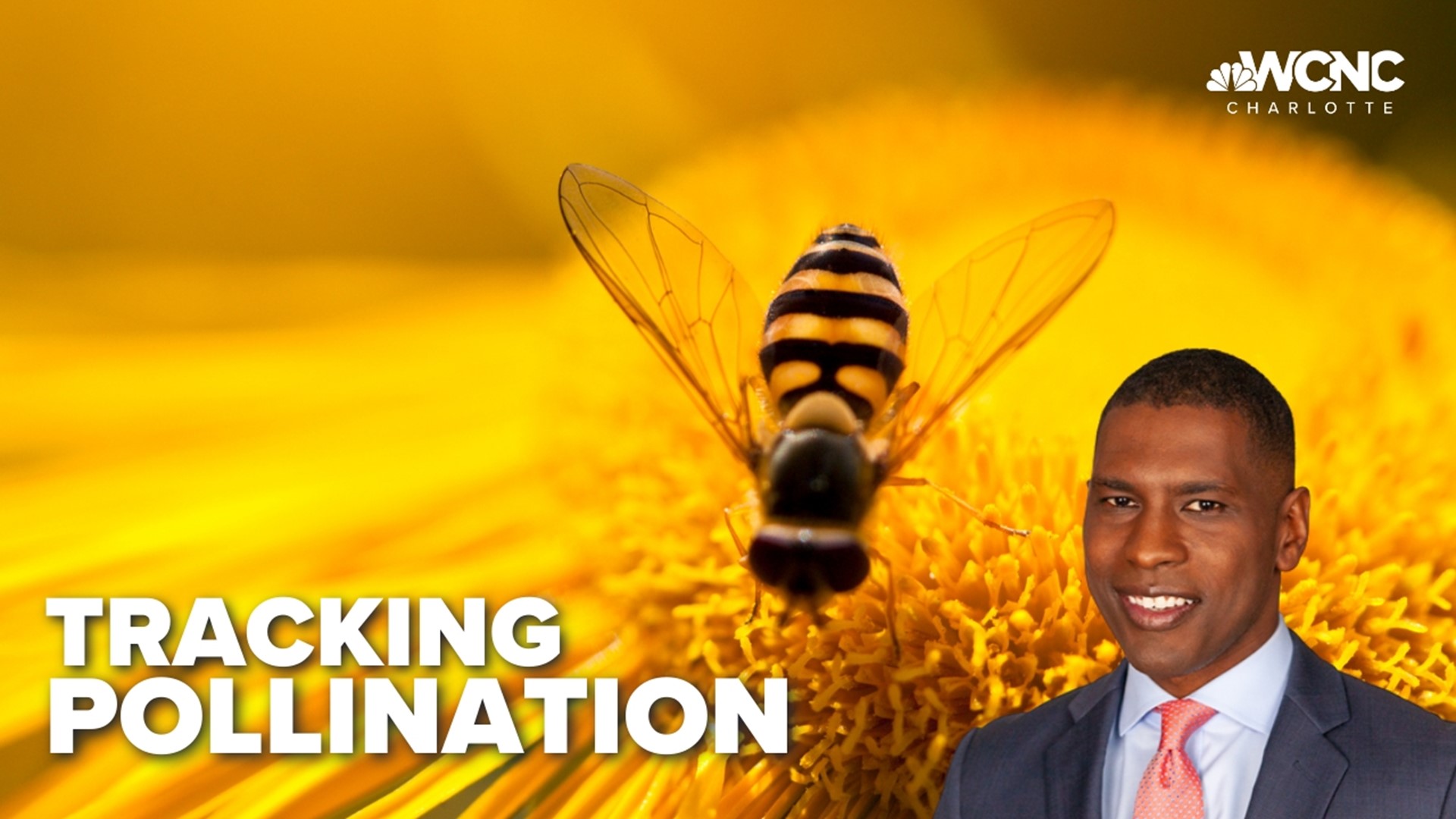CHARLOTTE, N.C. — A community-wide STEM project is underway, and it's easy for anyone to get involved. It involves getting a head count of pollinators like insects when they land on your favorite plants.
The North Carolina Cooperative Extension is a host for the pollinator count event. It’s like people-watching, except you’re watching insects and counting the various insects that land on a plant.
The Great Southeast Pollinator Census is one of three studies ongoing to collect data on pollinators since they play a key role in our food source. The two-day event to identify, collect, and upload your data starts on August 18th through August 19th across Georgia, South Carolina, and North Carolina.
According to the cooperative extension, anyone can participate, such as students, educators, master gardener groups, families, and coworkers.
“Generally, what you’re looking for are things like bees of all different shapes and sizes," Tracy LeCompte with the extension agency said. "Pollinators include things like bats, butterflies, moths, and species of skippers and flying insects -- lots of our beetles are pollinators, hummingbirds are pollinators."
"Anything that is attracted to those flowers and moves from flower to flower will take that pollen with them to help pollinate that flower,” LeCompte added.
The process is simple: start by choosing a plant, watch it for 15 minutes, count the number of visitors then upload your information to the online portal. You’re watching for bees, wasps, and butterflies to name a few.
The data you share will be used to look at long-term trends. WCNC Charlotte caught up with LeCompte as a group of volunteers took notes on pollinators themselves.
“15 of our volunteers that are here today saw between 40 and 50 different things happening, interactions between pollinators and the plant they chose,” LeCompte said.
LeCompte said the best time to get the most pollinators will be in the morning. They will be less active on hot, rainy, or windy days.
The Southeast Bumble Bee Atlas and the Lost Ladybug Project are two other studies to help learn more about pollinators.
Contact KJ Jacobs at kjacobs3@wcnc.com and follow him on Facebook, Twitter and Instagram.

